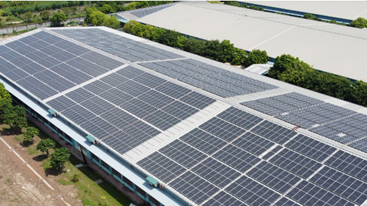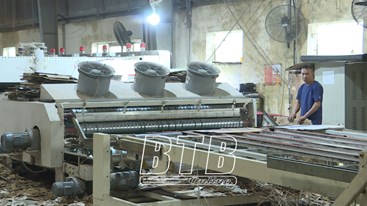Sunday, 19/05/2024 | 21:06 GMT+7
October is National Energy Awareness Month, and to celebrate this joyous eco-occasion, we’ve compiled a list to help you reduce your energy consumption and shrink your footprint even more.
Switching to fluorescent lighting and turning the thermostat down are great energy saving starters, but if you’re looking to go the extra mile to save energy in your home, these tips are for you.
Get a home energy audit
This is the No. 1 way to increase your home’s energy efficiency. A new nationwide poll conducted by RESNET, a national nonprofit organization that rates energy efficiency in homes, shows that while nine out of 10 American homeowners are concerned with energy efficiency, only one in three believes their own home is energy efficient.

Many homeowners know their home is leaking energy, but they just don’t know what to do about it. The best way to take the next step is to ask a pro.
Have an energy auditor come into your home and take a look around. He or she will point out the biggest problem-areas and suggest affordable ways to repair them. An energy auditor also help you get tax breaks and incentives to help pay for the weatherization of your home.
You can find an energy auditor near you through RESNET, or try searching all Energy Star-qualified auditors.
Pack smarter
No, we’re not talking about your next business trip. We’re talking about your fridge and freezer. Improperly packed freezers or refrigerators can cause a huge energy drain.
Think about it like this: when you open the door to your fridge or freezer, warm air from your kitchen comes in and replaces the cool air inside. Your fridge now needs to use more energy to maintain temperature. So, the more empty space you have, the more warm air will enter your fridge, and the more energy your fridge will use.

We’re not telling you to stuff your cold-storage box to the gills with perishables, but in general, full is good. The refrigerator should be full, but there should still be enough empty space around your items for the air to circulate efficiently. The freezer should be more tightly packed, since your items will help to keep each other cool.
Redecorate with the planet in mind
So, you’ve already decorated for style. Now, try redecorating for efficiency. Scope out all the heating and cooling vents in your home, and make sure there is no furniture, drapery or other obstructions blocking the airflow.
Having a ton of stuff in front of your vents slows or stops the flow of air into your rooms, tempting you to needlessly crank up the thermostat. The same is true for baseboard heating.
If you heat your home with a radiator, try to leave at least a foot of space around it, and avoid stacking things on top. Not only will this decrease your heating and cooling bills, it will also give you an excuse for some fun redecorating in your home.
Don’t let vampire power suck you dry
Vampire power is the power your electrical devices use when they are plugged in but turned off or in standby mode. Major vampire power culprits are computers, chargers for cell phones or other electronics and television sets, and these power-suckers can account for a huge portion of your energy bill.

Put an end to vampire power in your home by unplugging chargers and other electronics when not in use. Put larger items such as televisions and computers on power-strips, and flip the switch to off when the items are not being used.
Make your unused outlets even more energy-efficient by inserting safety plugs. Outlets can be prime areas for outside air to leak into your home, and plugging them up will save on heating and cooling costs.
These two little changes can make a big difference. You’ll likely be shocked at your energy savings next month.
Get smart in the kitchen
It’s great to go green with an all-local meal, but there are plenty of simple cooking habits that will make your meals even greener.
When you use the stove, match the size of the pot to the size of the burner, and try to avoid using a small pot on a large burner. Only boil as much water as you need, and remember to use a lid so your water will boil faster. A pinch of salt helps, too.
If you are using the oven for multiple dishes, try to cook them all at once whenever possible, and use your oven’s self-clean setting while the oven is still hot.
Use a microwave or toaster oven whenever you can. They use much less energy than a standard oven, and your microwave’s defrost setting is a great alternative to running water.
Fix up your furnace
Be warned. This may involve a trip to the murky, spider-filled basement, but we promise the energy savings will be well worth it.

First, make sure all the ducts connecting your furnace to the wall are tightly sealed. In many cases, you can cover small holes with non-toxic tape, but if ducts appear loose, you may want to have a professional take a look.
Once checked that your furnace is turned off and fully cooled, take off the sides of your furnace. Use a vacuum cleaner to blow out any dirt or dust that may have accumulated, and follow with a damp towel. Make sure to properly re-attach the sides of your furnace when you’re done.
The easiest and most commonly forgotten step to an efficient furnace is a clean filter. Dirty filters can restrict airflow and increase energy use. Changing or cleaning your furnace filters once a month increases efficiency, and you’ll notice a change in your energy bill.
Drop those dishes
Well, not literally. What we really mean is: give yourself and the planet a break, and stop doing dishes by hand. Using the dishwasher actually wastes much less heated water than washing dishes in your sink.

To make sure you are saving the maximum amount of energy, only run the dishwasher with a full load, and skip the pre-rinsing.
Many of us pre-rinse our dishes in the sink with the idea that the dishwasher won’t have to work as hard, but a study conducted by Consumer Reports found that this added step can waste up to 20 gallons of heated water per day.
For stuck-on foods, try a little bit of water and steel-wool, and just toss all those other dishes into the dishwasher. Easier for you and better for the environment? Sounds great to us.








.jpg?w=367&h=206&mode=crop) Energy efficiency and conservation usage is an important aspect of the national energy development strategy
05/03/2024
Energy efficiency and conservation usage is an important aspect of the national energy development strategy
05/03/2024
 Challenges and Opportunities to promote energy efficiency market in Vietnam
Challenges and Opportunities to promote energy efficiency market in Vietnam
 The Ministry of Industry and Trade requests government agencies to coordinate in organizing Earth Hour 2024
The Ministry of Industry and Trade requests government agencies to coordinate in organizing Earth Hour 2024
 Consultation on Energy Efficiency Boiler Catalogue and Wood Drying Guideline
Consultation on Energy Efficiency Boiler Catalogue and Wood Drying Guideline
.png?w=367&h=206&mode=crop) Request for expression of interest - C2.1.13: Capacity Building on energy efficiency policies development
Request for expression of interest - C2.1.13: Capacity Building on energy efficiency policies development
 Son Ha Co., Ltd, applies energy efficiency and conservation measures
Son Ha Co., Ltd, applies energy efficiency and conservation measures
 Phuc Kien Co., Ltd., is effectively implementing energy-saving measures
Phuc Kien Co., Ltd., is effectively implementing energy-saving measures
 Request for expression of interest - C2.1.12: Independent monitoring of safeguards implementation
Request for expression of interest - C2.1.12: Independent monitoring of safeguards implementation